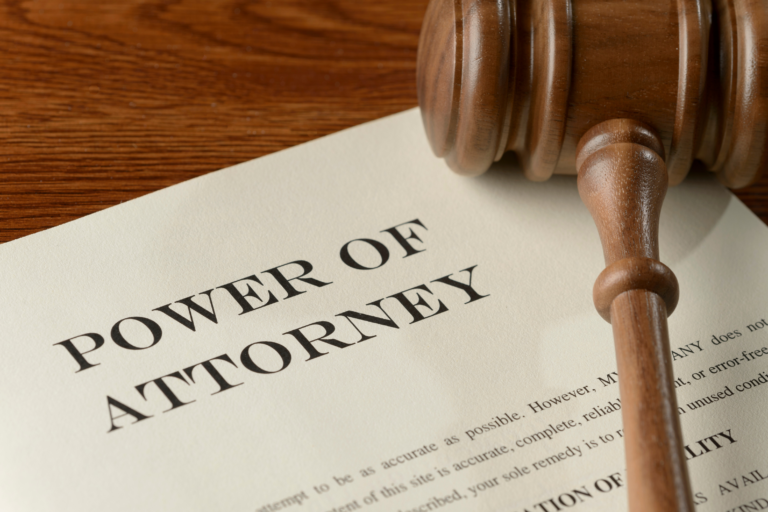When a foreign national dies owning property in Florida, how does Florida law apply to the estate of someone who was not a U.S. citizen, much less a state resident?
Below is what you need to know.
Probate: What Is It and Why Is It Necessary?
Probate is a legal process that involves the identification, valuation, and distribution of the assets of a deceased person, as well as the payment of any debts and taxes.
Probate is usually supervised by a court and may require the appointment of a personal representative (also known as an executor or administrator) to manage the estate.
When a foreign national dies owning property in Florida, probate is necessary. This is because Florida law has jurisdiction over any property located within its borders, regardless of the owner’s nationality or residence.
Therefore, if you are a foreign national who owns real estate, bank accounts, vehicles, or other valuable assets in Florida, your estate will have to go through probate in Florida after your death.
Probating the estate of a foreign national can be complicated and costly, especially if they also have assets in other states or countries, as you may have to deal with multiple probate proceedings, different legal systems, conflicting laws, currency conversions, tax issues, and language barriers.
Moreover, probate can take a long time to complete, sometimes years, during which your property may be frozen and inaccessible to your heirs.
When a Foreign National Dies Owning Property in Florida
The probate process for foreign nationals may vary depending on the type and value of the property, the existence and validity of a will, and the location and status of the heirs. However, in general, the following steps are involved:
Opening the probate case
The first step is to file a petition for ancillary administration in the county where the property is located. The petition must include information about the decedent, the property, the heirs, and the personal representative, who will be in charge of administering the estate.
The personal representative must be either a Florida resident or a close relative of the decedent, such as a spouse, parent, child, sibling, or grandchild. The personal representative must also be represented by a licensed Florida probate attorney.
Notifying the interested parties
The second step is to notify all the interested parties of the probate case. This includes creditors, beneficiaries, and any other persons who may have a claim or interest in the estate.
If any of the interested parties are located outside of Florida or outside of the U.S., special procedures may apply to ensure that they receive proper notice and have an opportunity to participate in the probate case.
Gathering and valuing the assets
The third step is to gather and value all the assets that belong to the estate. This may include real estate, bank accounts, vehicles, stocks, bonds, jewelry, art, and other personal property.
The personal representative must:
- Prepare an inventory of all the assets and submit it to the court within 60 days of being appointed,
- Obtain appraisals or valuations of any assets that are not readily ascertainable, and
- Determine if any of the assets are subject to homestead protection or exempt from creditor claims.
Paying debts and taxes
The fourth step is to pay all the debts and taxes that are owed by the estate. This may include mortgages, loans, credit cards, medical bills, funeral expenses, attorney fees, court costs, and other liabilities.
The personal representative must publish a notice to creditors in a local newspaper for two consecutive weeks and mail a copy of the notice to all known creditors. The creditors have three months from the date of first publication to file their claims with the court.
The personal representative must also file any required tax returns and pay any federal, state, or local taxes that are due.
Distributing the remaining assets
The fifth and final step is to distribute the remaining assets to the heirs or beneficiaries according to the will or according to Florida law if there is no will.
The personal representative must:
- Prepare an accounting of all the transactions that occurred during the administration of the estate and submit it to the court for approval, and
- Obtain receipts or releases from all the heirs or beneficiaries who received their share of the estate.
Once all these steps are completed, the personal representative can file a petition for discharge and close the probate case.
We Can Help You
If you are a foreign national who owns property in Florida, you need to plan ahead and prepare for the possibility of probate.
The probate process can be complex and daunting; however, you do not have to face it alone.
At Jurado & Associates, P.A., we have a diverse team with ample experience helping clients all over the world with their probate matters. We understand the unique challenges and opportunities that foreign nationals face when dealing with probate in Florida, and we can help you create a customized estate plan that suits your needs and goals.
If you want to learn more about probate or if you need any legal assistance with your probate or estate planning matters, do not hesitate to contact us today.
You can reach us by phone at (305) 921-0976, by email at [email protected], or by WhatsApp at +1 (305) 921-0976.






